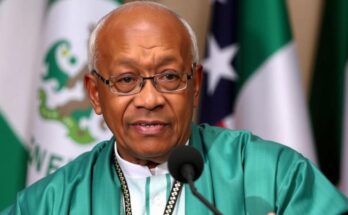The upcoming 2024 presidential election has emerged as a significant reflection on gender dynamics in American society, highlighting Vice President Kamala Harris’s candidacy as a potential watershed moment for women’s leadership. Although rarely discussed overtly by the candidates, gender is evidently central to the electoral discourse, influencing voting patterns and societal attitudes, particularly in the wake of recent judicial decisions impacting women’s rights.
As the 2024 presidential election approaches, a principal issue prevailing in the background, albeit seldom articulated directly by either candidate, is gender. The contest between Vice President Kamala Harris and former President Donald Trump has evolved into a referendum on the role of women within American society. With merely weeks until Election Day, it appears that discussions surrounding gender dynamics are overshadowing traditional concerns such as the economy or personal attacks regarding judgment and character. Notably, Vice President Harris’s potential historic achievement as the first female president amplifies the significance of gender in this election. Supporters display pro-Harris messaging, serving as reminders of the private nature of their votes, further emphasizing the gender implications within the electorate. Meanwhile, Mr. Trump’s campaign tactics often include derogatory references, framing opposing liberal men as weak or effeminate, indicative of a broader dialogue concerning masculinity in the political sphere. Polling data demonstrates clear variance in voting patterns attributed to gender, underscoring a demographic divide. Female supporters of Harris express concerns about the difficulties faced by men in their lives when acknowledging their support for a woman, particularly one of Black and South Asian descent. These insights raise profound questions regarding societal attitudes toward women in positions of power. Prominent political figures have noted the unusual prominence of gender in this election cycle. For instance, Governor Janet Mills of Maine articulated the sense of urgency in questioning the closeness of the race by contemplating whether a male candidate would have garnered distinct outcomes. The implications of these sentiments reveal not only the extensive impact of gender but also the residual effects of historic sexism, particularly in light of recent developments, such as the Supreme Court’s decision to overturn constitutional protections surrounding abortion rights, further galvanizing women’s political engagement. This election showcases a narrative intimately intertwined with gender, setting a potentially transformative precedent for future political landscapes in the United States.
The conversation surrounding gender in American politics has gained prominence, especially as we approach significant election periods. Historically, the role of women in political settings has been fraught with challenges, as they have often faced systemic obstacles. The upcoming 2024 presidential election, featuring Vice President Kamala Harris’s potential ascension to the presidency, serves as a pivotal moment that may redefine gender roles in public life. Observers highlight critical issues such as longstanding gender biases, the implications of female leadership, and recent legal reversals impacting women’s rights, all of which contribute to a charged electoral atmosphere.
The 2024 presidential election is poised to serve as a pivotal moment in American history concerning gender dynamics. As Vice President Kamala Harris campaigns for the presidency, the implications of her candidacy catalyze broader discussions on the place of women in leadership roles and the societal perceptions that govern these dynamics. Historical patterns exhibit a pronounced gender influence in this electoral contest, making it clear that the outcomes may well reflect the shifting tides surrounding women in American life.
Original Source: www.nytimes.com




